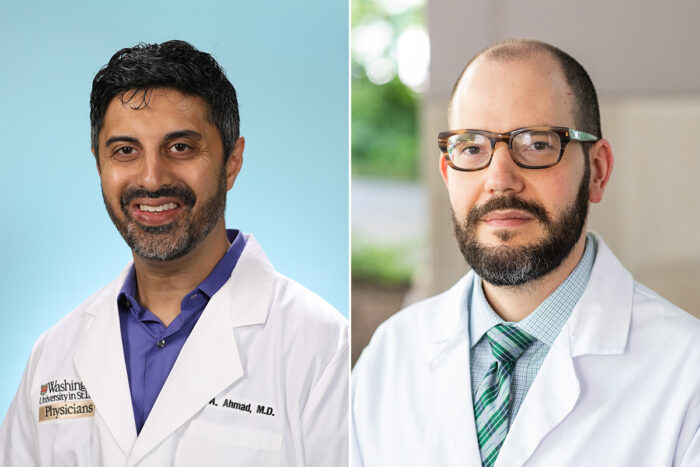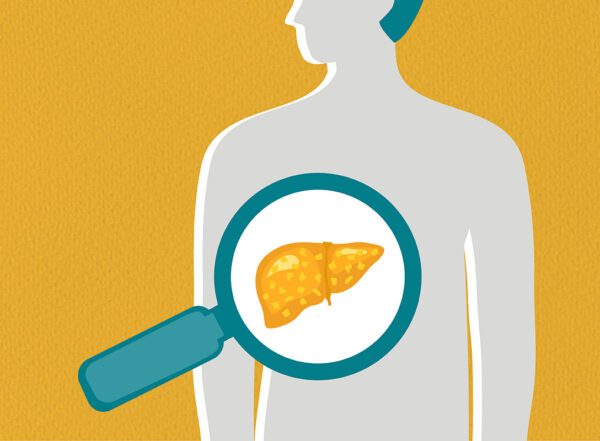Ahmad, Fraum named Loeb Teaching Fellows
Focuses will be on developing curriculum for financial literacy, radiologic physics
 WashU Medicine
WashU MedicineThe 2025-27 Carol B. and Jerome T. Loeb Teaching Fellows at WashU Medicine have been named. They are (left) Fahd A. Ahmad, MD, an associate professor of pediatrics, and Tyler Fraum, MD, an associate professor of radiology.
Fahd A. Ahmad, MD, an associate professor of pediatrics, and Tyler Fraum, MD, an associate professor of radiology, have been named the 2025-27 Carol B. and Jerome T. Loeb Teaching Fellows at Washington University School of Medicine in St. Louis.
The two-year fellowship provides recipients extra time to focus on implementing innovative ideas to enhance the education of medical students and residents. The program was established in 2004 with a gift from Carol B. and Jerome T. Loeb to advance medical education.
“For decades, the Loebs’ generosity has fostered innovation and excellence in our curriculum and demonstrated a steadfast commitment to educating the next generation of physicians and physician-scientists,” said Eva Aagaard, MD, vice chancellor for medical education, senior associate dean for education, and the Carol B. and Jerome T. Loeb Professor of Medical Education at WashU Medicine. “Their dedication is reflected in our students, trainees and alumni who emphasize a holistic and compassionate approach to patient care. The Loebs’ imprint on the health-care field through support of medical education is far reaching and long lasting.”
The Loeb fellowship is also supported by The Foundation for Barnes-Jewish Hospital.
With his fellowship, Ahmad will develop a longitudinal financial well-being curriculum for pediatric trainees. Early in his career, Ahmad recognized the need for financial education among medical trainees. Over the past 10 years, he has led a popular financial education lecture series equipping pediatric and internal medicine residents with skills for long-term financial security, including loan repayment strategies and retirement planning. The fellowship also will help him integrate the curriculum into the residents’ studies and incorporate several educational methods, including workshops and simulations.
“We’re often taught when we pursue careers in medicine that finances and money shouldn’t matter and often hear that physicians shouldn’t manage their finances,” Ahmad said. “It has led to a culture of discomfort discussing financial topics with our peers and trepidation over learning about it. We are harming current and future generations of physicians with this approach, and I hope with this expanded, integrated curriculum, we can do better for our trainees.”
Fraum’s fellowship project aims to revamp the radiologic physics curriculum for resident trainees at Mallinckrodt Institute of Radiology. Understanding radiologic physics is critical for residents because it is the basis for optimizing images, recognizing artifacts, building protocols and minimizing radiation risk.
“Historically, radiologic physics has been a bitter pill for many residents — a necessary but often unpleasant aspect of their training,” Fraum said. “The curriculum I plan to build, in collaboration with several other radiologists and physicists in our department, will incorporate active learning strategies, such as audience participation and case-based formats to enhance resident engagement. Furthermore, it will focus on practical, clinically relevant topics that residents are likely to encounter throughout their careers. Overall, our goal is to make the radiologic physics curriculum cognitively nourishing yet enjoyable — in other words, to transform it from a bitter pill into a gummy vitamin.”






